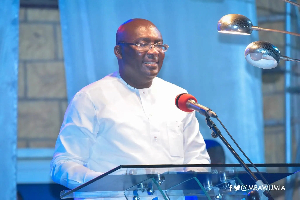Accra, Feb. 18, GNA - The Bank of Ghana will continue to smoothen out short-term fluctuations of the cedi against major international currencies to minimise the disruptive effects of such flows, Governor of the Central Bank, said in Accra on Friday.
Speaking on the recent developments in the foreign exchange market, Mr Kwesi Amissah-Arthur said the long term sustainability, export competitiveness, stable reserve accumulation and minimising speculative flows would guide the management of the foreign exchange market. In the last two months, the foreign exchange market has recorded some volatility against the major currencies, reflecting mainly the higher seasonal demand for foreign exchange.
At the end of November 2010, the exchange rate of the Ghana cedi to the dollar had depreciated by 0.3 per cent (year on year). The rate of depreciation increased to 3.1 per cent by end December and to 5.1 per cent in January 2011.
Against the pound sterling and the euro the respective appreciations recorded in November 2010 was 8.6 and 13.5 per cent while appreciations of 2.0 and 5.7 per cent were recorded for December 2010.
In January 2011 depreciations of 1.6 per cent and 3.2 per cent were recorded against the sterling and the euro.
For the same period in January 2010, the comparative depreciation of the Ghana Cedi against the sterling and the euro were 20.7 and 15.6 per cent respectively.
Mr Amissah-Arthur said it was important to recall that Ghana had become an attractive investment destination for portfolio investments with higher domestic interest rates and the prospects of currency appreciation due to expected receipts of petroleum revenues. "In managing the situation there are bound to be occasional fluctuations in the exchange rate, which is normal in any well-functioning market," the Governor said.
Business News of Friday, 18 February 2011
Source: GNA
















